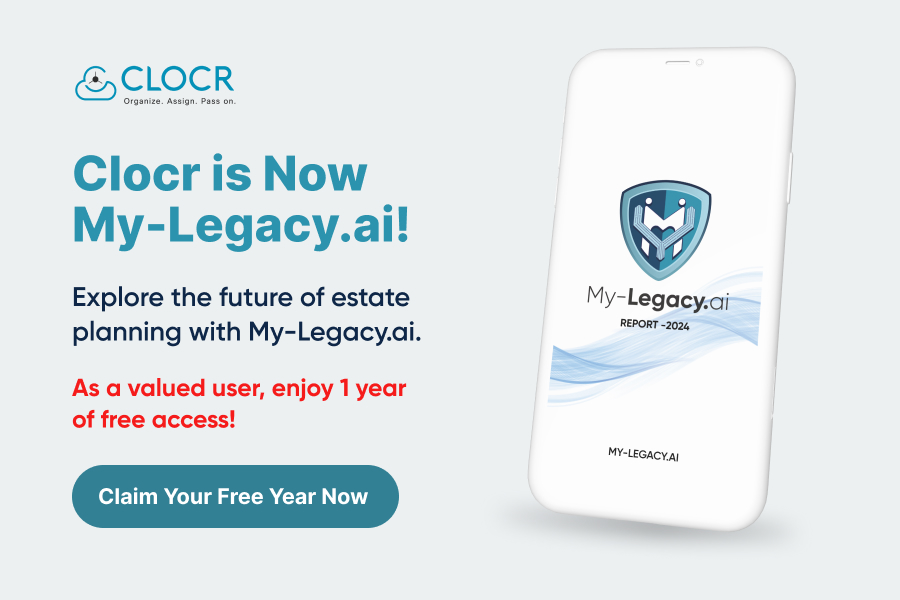National Estate Planning Awareness Week falls between the 18th to 24th of October this year. It is a public campaign to create awareness about Estate Planning and help people understand why it is important to plan for their estates.
According to a Wills survey conducted by caring.com in collaboration with YouGov, though the Covid-19 pandemic has increased people’s desire to get a Will (35% saw a greater need to get one done), the overall percentage of people with a Will hasn’t changed since last year. This means 2 out of 3 people still do not have an Estate Plan in place.
The recent pandemic and global lockdown situation has certainly made us wary of the uncertainties in life. Some things might be beyond our control but there are a few for which we can prepare in advance. One such instance where preparation before-hand is beneficial is Estate Planning.
On this year’s National Estate Planning Awareness Week, we debunk a few myths related to Estate Planning, discuss the various Estate Planning tools you can use and give you some Estate Planning tips. As a bonus, we will also talk about how you can create an Estate Plan exclusively for your Digital Assets. Yes, you heard that right!
In this post, you will learn about:
Common Estate Planning Myths
Myth #1: I am not wealthy enough to need an Estate Plan
Estate Planning is for everyone and not just the ultra-rich. If you own a property, have liquid assets or insurance, people who are dependent on you for their basic needs(family members), you need to have an Estate Plan in place so that your loved ones can live happily in the future.
Estate Planning is more than just creating a Will or Trust. You can also include an Advance Directive and appoint someone to make financial or health-related decisions for you when you can no longer do it for yourself (in case of incapacity.)
Estate Planning can also help you fulfil your dying wishes. If you want a certain family heirloom to go to a specific someone, you can include this instruction in your Estate Plan. Writing down specific instructions and getting the document authorized by a lawyer or attorney avoids family disputes after an unexpected death.
Myth #2: Estate Planning is only for Older People
The ongoing pandemic situation might have put a dent to this myth as the world has lost youngsters too to the dreaded virus. You might think Estate Planning is only for those who are old and on the verge of planning their retirement. But, what about the young? Well, tragedy strikes the young too. You never know what the future beholds but you can certainly make arrangements so that your loved ones can have a better future.
Myth #3: Estate Planning matters only when I die
Not really. Estate Planning is more than just writing down your final wishes or distributing your assets. Charitable giving, legacy planning as well as planning for your future incapacity are major areas of importance in a well-crafted Estate Planning document.
In the event of incapacity, an Estate Plan can help you in the following ways:
- You can designate a health-care surrogate to ensure your health care wishes are met
- You can appoint an individual to make financial decisions on your behalf
- Authorize a trustee to administer your trust assets on your behalf
- Appoint a guardian to look after your minor children
Myth #4: After I die, my immediate family members (spouse and children) will receive my assets
If you die intestate, that is, die without a Will, the state you live in will apply its ‘laws of intestacy.’ This means your estate might be divided to beneficiaries who are not of your choosing or unintended beneficiaries like an ex-spouse or financially irresponsible children.
Estate Planning Tools
- Wills and Trusts: A Will or Trust gives you a way to make your wishes known after your death. A Last Will and Testament allows you to appoint an Executor to handle your estate after your death. It also allows you to state to whom a certain piece property must go to.
- Health Care Directive: An advanced healthcare directive gives you a chance to instruct your loved ones regarding the medical care you wish to receive in case of incapacitation. You can also include life-sustaining measures such as breathing and feeding tubes.
- Power of Attorney: A Power of Attorney (POA) gives someone of your choice the authority to handle your affairs. A POA gives someone the legal authority to take charge of your matters in case of your incapacitation. A Financial POA handles your financial matters while a healthcare POA will be in charge of your health care decisions.
- Life Insurance: A Life Insurance makes sure your loved ones are taken care of, after your death. Parents of minor children and homeowners should look into life insurance protection.
5 Estate Planning Tips
Choose a Responsible Estate Administrator
An Executor or an Estate Administrator is an individual who will handle your estates after you’re gone. If you die intestate, that is, without a Will, the court will choose an individual to handle your Estate. This also might be an individual whom you do not want to handle your Estate, Thus, it is important to appoint an Executor of your choice for your Estate.
The most important thing to keep in mind while choosing an Executor is to make sure you appoint someone who is able to make firm and sensible decisions while handling your Estate.
Draft a Will
Anyone over the age of 18 should have a Will. A Will is a rulebook for distribution of your assets and prevents disputes between your heirs. Also, a Will can be more than just distributing your tangible properties. You can appoint a guardian for your minor children, add advance directives regarding financial and health care in case of your incapacity and also leave assets to charitable organizations through your Will.
Create a List of Assets and Review them regularly
The first step to creating an Estate Plan is to make an inventory of all the assets you own. This can be your property, jewelry, money and much more. In today’s world, including your Digital Assets in your Estate Plan has also become a necessity. (We will be discussing Estate Planning for Digital Assets in the latter part of this post.)
Creating an Estate Plan is just the beginning. Assets change with time. You might own a few more assets than when you first created an Estate Plan. Or, the opposite. It is always recommended to review the list of assets and make changes to your Estate Plan accordingly once in 3-5 years.
Review your Estate Plan regularly
Well, when we say review your list of assets and make changes in your Estate Plan accordingly, how can we not mention the other reasons for which you might want to review your Estate Plan.
Some life events that call for a review to your Estate Plan includes: Marriage, Separation or Divorce, Death of a spouse or immediate family member, birth of a child or adoption and change of scenery (if you recently moved from one state to the other, your new state’s Estate Planning laws will be applicable.)
Pay a visit to an Estate Attorney and a Financial Advisor
You might think you have covered all bases by creating an Estate Plan on your own. DIY kits are a fad these days, but have you considered all the tax issues while drafting a Will on your own? How about the other issues that might require your Estate Planning documents to go through a probate? These are the areas where an Estate Attorney and a Financial Advisor can help you.
Create an Estate Plan for your Digital Assets
We have finally come to the bonus section of the post: Creating an Estate Plan for your Digital Assets!
In the modern world, making arrangements as to what must happen to your Digital Assets after you’re gone has become a necessity. There are some Digital Assets which cannot be added to your Will but hold sentimental value to you and your family members.
You can make arrangements for those Digital Assets that cannot be added to your Will by creating a Digital Estate Plan.
A Digital Estate Plan is an Estate Plan exclusively crafted for your Digital Assets. Digital Assets are digital properties you own or created on the internet. This can range from social media profiles, email accounts, online shopping accounts to subscription accounts and cryptocurrencies.
You can learn more about the advantages of having a Digital Estate Plan and how to create a Digital Estate Plan by reading our blog posts.
As a bonus, we have listed the Digital Assets that can and cannot be included in your Will.
Leaving Digital Assets through your Will
On this National Estate Planning Awareness Week, make a decision to draft an Estate Plan if you do not have one. If you do have an Estate Plan in place, give yourself a pat on the back and remember to review it regularly.



